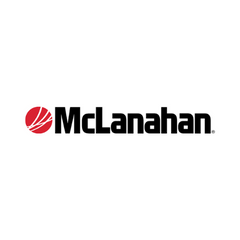“Manure has been a problem on dairies from day one,” Wayne Raiche states. Attempts to move it, collect it, dry it, spread it, compost it, etc., have all amounted to expensive systems that require labor and maintenance. Raiche is the general manager of Loewen Welding & Manufacturing Ltd., a company that has been manufacturing manure-handling solutions in Matsqui, British Columbia, since it began in 1967. One of its more popular products is a manure vacuum for cleaning and transportation of liquid manure.
“Some manure is too thick for vacuum tanks. They aren’t built to pick up dry manure,” Raiche says. That is why last fall Loewen built the first-ever solid manure self-loader, known as the Honey-Loader.
Raiche had been tossing around the idea of such a machine for more than a decade but didn’t want to act on it until he had a serious customer. This past year, one of his dealers in Colorado introduced Raiche to Ed Wilgenburg and his son, Jacob.
The Wilgenburgs operate Wildcat Dairy, a 5,000-cow operation in Fort Morgan, Colorado, and had a specific need for a loader. So much so, that Jacob had drawn up a proposed two-dimensional computer sketch through a program at his high school.
With a customer on the horizon, Raiche took what he had envisioned and designed the loader. He went back to Colorado with his design in hand. There he received some additional input from the Wilgenburgs and their dealer. After two to three months of manufacturing time, the one and only unit was delivered to Wildcat Dairy in early winter.
The loader consists of a pull-type wagon on a tandem-axle undercarriage. The self-loading unit is attached to the front with wings that open to span 13 to 14 feet. The wings funnel all manure into the pick-up head, which loads the manure into the wagon.
This is different from manure vacuums that use air to move the manure, yet it can do the same for dry manure as a vacuum does for liquid manure.
Designed for big feedlots and areas of the country where manure is too dry for a vacuum system, this loader can manage a variety of manure consistencies.
“It will pick up dirt and even work on sloppy manure,” Raiche says.
“It is nice and versatile for basically any condition,” Ed Wilgenburg adds, noting they’ve tried it with liquid manure and down the walkway of their outdoor heifer facility.
Throughout most of the year, Wildcat Dairy cleans its freestall barns with a flush system. However, when temperatures fall below freezing, that system does not work. On those days, the dairy would run four loaders all day, every day, to remove the solid manure from the barns.
Use of the solid manure self-loader has made that process far more efficient, the dairy owner says. “It only takes one operator and it’s fast,” Wilgenburg says. “It can handle any condition from dry and solid, to liquid, to frozen.”
“We did not expect to build it for frozen manure, but that is another application,” Raiche says.
Wilgenburg has been impressed by the speed of the machine. “It loads really fast,” he says. “It goes three to seven miles per hour depending on the waste load.”
Raiche adds, “It takes longer to open and close the gates at the end of the barn.”
In a typical winter, Wilgenburg estimates the machine would be used for two to six weeks. However, an unseasonably mild winter this year only had the flush system out of operation for two to three days, when the solid manure self-loader was put to action.
After using it, Wilgenburg’s only suggestion is to make the wagon bigger to handle manure from more cows at once. However, he has found a way to modify it. “The way it is designed, we can put a one-foot rubber ring on top to add capacity,” he says.
The solid manure self-loader is an expensive piece of equipment, selling in the range of $140,000 to $150,000.
At his operation, Wilgenburg estimates the payback to be a couple of years at least because it isn’t used all year long. However, he figures a dairy that uses it throughout the year will see a payback in the first year. PD
Click here to contact Raiche or call (604) 826-7844 to learn more about the solid manure self-loader.
YOUR RESULTS
Would you benefit from this type of solid manure self-loader?
The following checklist can be used to determine if this new technology might be a fit for your operation.
1. Do you operate a large dairy?
2. Is your dairy in a dry climate?
3. Do you handle dry manure in your dairy operation?
4. Are you interested in a more efficient way of handling manure?
5. Have you considered the use of a self-loading unit?
6. Does cleanup of frozen manure become a problem at your farm?
If you answered yes to four or more of these questions, this technology may be one for you to consider.
PHOTO
The Honey-Loader, a solid manure self-loader, built by Loewen Welding & Manufacturing, can collect and carry dry, lumpy manure. It has also been tested to handle frozen and sloppy manure. Photo courtesy of Loewen Welding & Manufacturing.

Karen Lee
Editor
Progressive Dairyman






